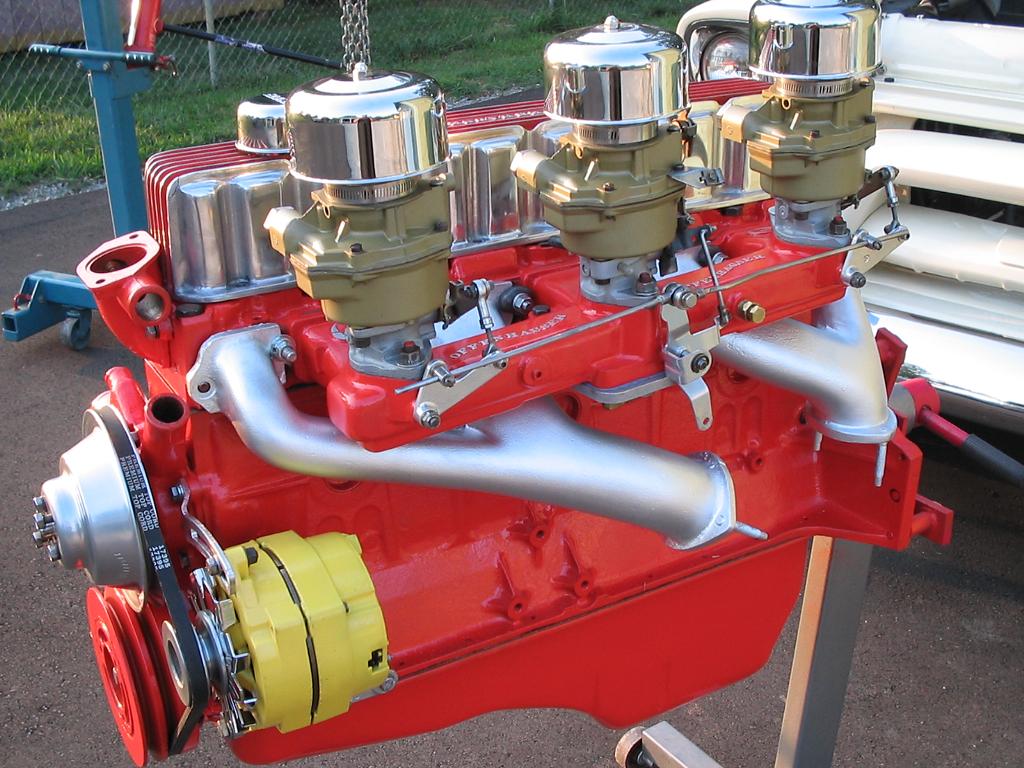GM 4-Cylinder Engine Issues: A Comprehensive Guide
Are you experiencing issues with your GM 4-cylinder engine? You're not alone. Many GM vehicles equipped with 4-cylinder engines have encountered various problems over the years. Understanding these issues is crucial for both owners and prospective buyers. This comprehensive guide aims to shed light on common GM 4-cylinder engine problems, their potential causes, and possible solutions.
From sputtering performance to excessive oil consumption, issues with these engines can range from minor annoyances to significant mechanical failures. Determining the root cause of a problem is often the first step toward an effective repair. While some issues can be easily addressed with routine maintenance, others may require more extensive repairs.
The history of GM 4-cylinder engines is long and varied, encompassing a wide range of designs and technologies. From early carbureted models to modern direct-injected engines, these powerplants have powered millions of vehicles. However, certain engine families have become known for specific recurring problems. Recognizing these patterns can help diagnose and address issues more efficiently.
Among the most frequently reported problems are excessive oil consumption, timing chain issues, and problems with the fuel injection system. Oil consumption issues can lead to low oil levels, potentially causing catastrophic engine damage if left unchecked. Timing chain problems can disrupt engine timing, resulting in poor performance, misfires, and even engine failure. Fuel injection system malfunctions can lead to rough idling, reduced fuel economy, and decreased engine power.
Understanding the potential causes of these issues is vital for effective troubleshooting. Excessive oil consumption can stem from worn piston rings, valve seals, or PCV valves. Timing chain issues can be caused by stretched chains, worn guides, or faulty tensioners. Fuel injection problems can arise from clogged injectors, faulty sensors, or a malfunctioning fuel pump. Diagnosing these issues often requires a thorough inspection and sometimes specialized diagnostic equipment.
Diagnosing GM 4-cylinder engine troubles often starts with recognizing the symptoms. Excessive oil consumption might be indicated by frequently needing to add oil between oil changes or seeing blue smoke from the exhaust. Timing chain issues can manifest as a rattling noise from the engine, especially during cold starts. Fuel injection problems can cause rough idling, hesitation during acceleration, or decreased fuel economy.
While some benefits of 4-cylinder engines are fuel efficiency and lower manufacturing costs, focusing solely on "benefits of problems" is misleading. Instead, let's discuss how identifying and addressing these problems provides advantages. Catching issues early through preventative maintenance can prevent more costly repairs down the road. Understanding common problems can also help you make informed decisions when purchasing a used GM vehicle with a 4-cylinder engine.
Advantages and Disadvantages of GM 4-Cylinder Engines
| Advantages | Disadvantages |
|---|---|
| Fuel Efficiency | Potential for Specific Recurring Issues |
| Lower Manufacturing Costs | May Require Specialized Diagnostic Equipment for Certain Problems |
Frequently Asked Questions:
1. What are common problems with GM Ecotec engines? Excessive oil consumption and timing chain issues are commonly reported.
2. How do I check my engine oil level? Locate the dipstick, wipe it clean, reinsert it fully, and then remove it again to check the oil level.
3. What are the symptoms of a bad timing chain? Rattling noises from the engine, especially during cold starts, can indicate a timing chain problem.
4. How can I improve my GM 4-cylinder engine's fuel economy? Ensure proper tire inflation, regular maintenance, and avoid aggressive driving.
5. What should I do if my check engine light comes on? Have the vehicle diagnosed by a qualified mechanic as soon as possible.
6. How often should I change my engine oil? Consult your owner's manual for the recommended oil change interval.
7. What are the symptoms of a failing fuel pump? Difficulty starting, sputtering, and loss of power can indicate a failing fuel pump.
8. How can I prevent excessive oil consumption? Regular maintenance, including using the correct oil viscosity, can help prevent excessive oil consumption.
Tips and Tricks:
Regularly check your engine oil level and adhere to the recommended maintenance schedule outlined in your owner's manual. Addressing minor issues promptly can prevent them from escalating into major problems.
In conclusion, understanding common GM 4-cylinder engine problems is essential for both current owners and potential buyers. By recognizing the symptoms, understanding the potential causes, and taking proactive steps, you can keep your GM 4-cylinder engine running smoothly and avoid costly repairs. Regular maintenance, prompt diagnosis, and addressing issues early can significantly extend the life of your engine and ensure reliable performance. While these engines have their known issues, staying informed and proactive can mitigate risks and maximize the lifespan of your vehicle's powerplant. Don't hesitate to consult with a qualified mechanic for any concerns or suspected problems. Taking the time to understand and address these issues head-on will ultimately lead to a more positive ownership experience.
Who played brendas dad on the closer unraveling the mystery of clay johnson
Unlocking the court navigating free basketball picks on cbs sports
Capturing the essence quinceanera photography and its significance














